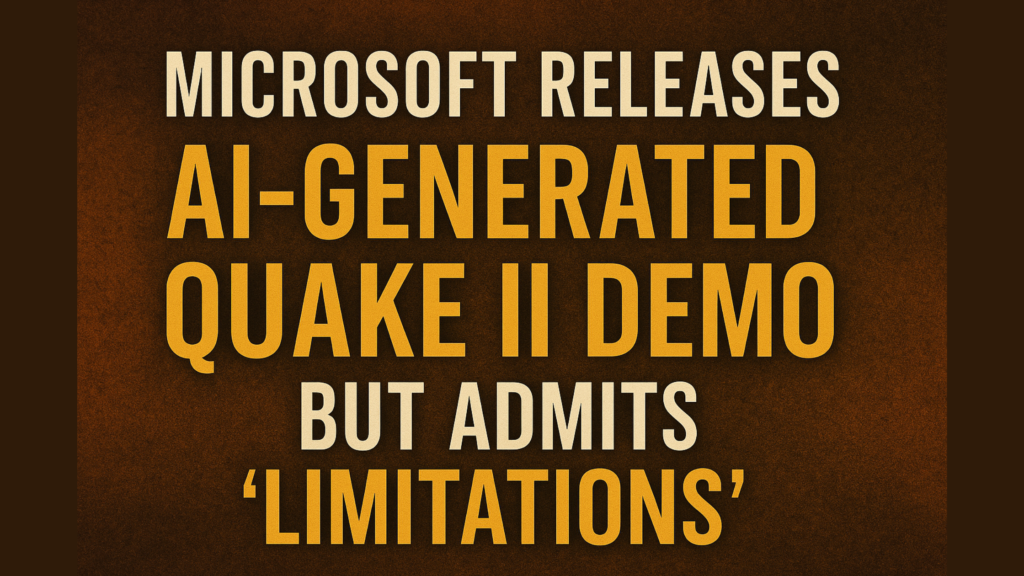The Google Gemini app is Google’s latest AI-powered personal assistant, built on advanced large language models (LLMs). It provides a multimodal interface that can handle text, voice, and images, allowing users to “collaborate directly with generative AI” on tasks like writing emails, debugging code, and brainstorming ideas. In fact, Google describes Gemini as an “interface to a multimodal LLM” that is becoming ever more “personal, proactive and powerful”. Gemini connects with Google’s ecosystem, including Search, YouTube, Maps, Gmail and more, to supercharge creativity and productivity.
As part of Google’s AI vision (unveiled at I/O), the Gemini app continues to add new features that anticipate users’ needs. The newest update introduces Scheduled Actions – a way to assign tasks to Gemini to run at specific times or on a recurring schedule. Rather than relying on one-off prompts, you can now set up Gemini to automatically perform routine jobs, freeing you to focus on more important work. Below we explore how Scheduled Actions works, who benefits, and how it ties into Google’s ecosystem.
Scheduled Actions: Automating Routine Tasks
With Scheduled Actions, the Gemini app can proactively handle tasks according to your timing instructions. In practice, you simply tell Gemini something like: “Every weekday at 8:00 AM, give me a summary of my calendar and unread emails,” and it will do so automatically. You can convert any helpful prompt into a recurring action by asking Gemini during your conversation. All your pending scheduled jobs are managed in one place – a new “Scheduled actions” page in the app’s settings where you can view, pause, or cancel them.
Scheduled Actions supports both regular and one-off tasks. For example, Google suggests you could schedule:
- Daily briefs: “Wake up with a summary of your calendar and unread emails,” so you start each day informed.
- Recurring creative prompts: “Write five ideas for my blog every Monday” to keep a steady stream of content inspiration.
- Personalized updates: “Get a notification about [your favorite sports team]’s score every evening,” or daily news/weather updates.
- Event recaps: “Summarize the [award show] tomorrow” – a one-off task to review an event after it happens.
In general, Scheduled Actions lets you “tell Gemini what you need and when, and it will take care of the rest,” as Google puts it. This is similar to the recurring tasks features now offered by other AI assistants (like ChatGPT), allowing Gemini to act more like a true personal assistant by handling reminders, summaries, and regular check-ins without further prompts.
Who Benefits from Scheduled Actions?
This new feature is especially useful for productivity-minded users:
- Busy Professionals: If you juggle many meetings and emails, Scheduled Actions can automatically pull together your daily agenda and unread messages. A morning calendar/email digest or an end-of-day summary keeps you up to speed without manual effort.
- Productivity Enthusiasts & Creators: Whether you’re a writer, marketer, or entrepreneur, automating recurring tasks can boost creativity. Set up Gemini to brainstorm blog ideas, draft weekly reports, or review progress on projects at regular intervals.
- Smart Home Users: Because the Gemini app can integrate with Google Home, you could conceivably schedule smart-home routines through your assistant. For example, link your Google Home account and Gemini, and then schedule actions like turning on lights or adjusting the thermostat at specific times. Google notes that “smart home devices that your Google Account can access” – including lights, outlets, climate controls, media devices and more – can be controlled via the Gemini app when linked to Home. (Note: actual support depends on available language releases and device compatibility.)
In short, anyone looking to streamline repetitive tasks or set reminders can leverage Scheduled Actions. It effectively extends Gemini’s role from answering instant prompts to proactively managing your routine, which can save time and mental effort for a wide range of users.
Integration with Google’s Ecosystem
Scheduled Actions is part of how Gemini fits into Google’s broader suite of services. For instance, Gemini already works with Google Calendar and Gmail:
- Google Calendar: Gemini can read and create events in your calendar. Official documentation shows that if you connect your Google Workspace account, you can “ask the Gemini app to create or show an event from Google Calendar,” and it will handle it via voice or text prompts. The new scheduling feature complements this by retrieving your upcoming calendar events automatically at the times you specify (e.g. a daily agenda).
- Gmail: Gemini powers new Gmail features. One example is the “Add to Calendar” AI button in Gmail – Gemini parses an email and suggests a calendar event, complete with a prompt to confirm the details. Additionally, the Gemini side panel in Gmail can now answer questions about your calendar and create events conversationally (e.g. “When is my first event next week?” or “Create a 30 min event for yoga every Monday at 9 AM”). With Scheduled Actions, you could combine these capabilities by having Gemini email you reminders or updates after meetings, or by checking your inbox and scheduling tasks automatically.
In fact, Google highlights that Gemini can connect with many Google apps:
“Connect with your favorite Google apps like Search, YouTube, Google Maps, Gmail, and more,” says the app’s description.
This means Gemini can pull in information from various sources (search results, Drive files, location data, etc.) when executing tasks. In practice, Scheduled Actions can leverage this integration. For example, you might schedule Gemini to summarize emails in your Gmail or check up on events in your Google Calendar. And because Gemini can interface with Google Home devices, it can serve as a hub for even household automation if you set up the routine.
Overall, Scheduled Actions builds on Gemini’s role as a central AI assistant in Google’s ecosystem. By tying into Calendar and Gmail, it becomes especially valuable for business and education users on Google Workspace plans. Indeed, Google’s announcement notes that Scheduled Actions is available to users with a Google AI Pro or Ultra subscription and qualifying Workspace plans.
Getting Started with Google Gemini
If you’re intrigued by these capabilities, getting started is easy. The Google Gemini app is available for free download (with optional in-app upgrade to Gemini Pro/Ultra) on mobile devices. On Android, you can get the Gemini app from Google Play and follow the prompts to set it up. On iOS, it’s on the Apple App Store as well.
Once installed, look for “Scheduled actions” under the app’s settings or by simply telling Gemini: “Schedule an action…”. You’ll need to sign in with your Google account and (if applicable) activate any Workspace connections (for Calendar, Gmail, etc.) when prompted. After that, just ask Gemini to do something at a time and it will appear in your Scheduled Actions dashboard.
Gemini’s new Scheduled Actions feature is a powerful addition for AI enthusiasts and productivity lovers alike. By automating routine tasks and integrating deeply with Google’s suite (Calendar, Gmail, Home, etc.), it helps ensure you never miss an important update or deadline. Try the Google Gemini app today and see how easy it is to put your personal AI assistant to work for you.
Get the Google Gemini app on Google Play or the App Store and start scheduling your tasks with Gemini!
Figure: The Gemini mobile app includes a “Scheduled actions” entry in its menu, where you can set up and manage automated tasks.

